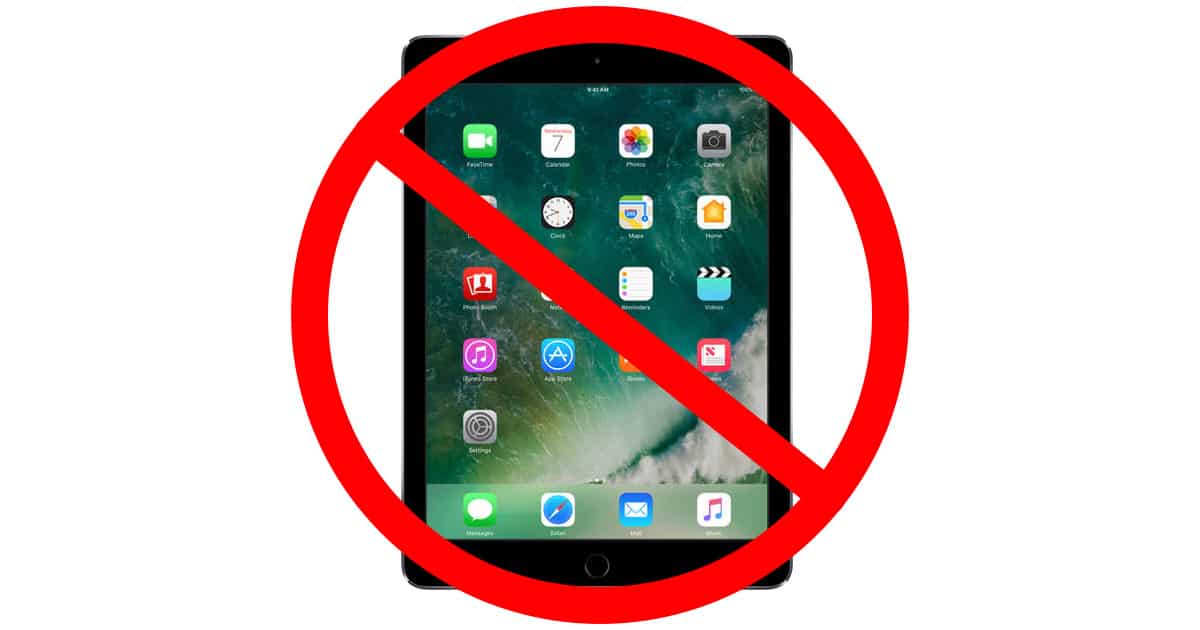If you’re planning on working on that big project on a flight to the U.S. from several airports in Muslim-dominant countries, think again because the Trump administration just banned anything larger than a smartphone in the passenger cabin. The ban restricts iPads and other tablets, Kindle ebook readers, laptops, and other larger electronic devices to checked luggage over terrorism concerns.

The new policy was announced earlier this week and applies to direct flights to the U.S. from Cairo, Istanbul, Kuwait City, Doha, Casablanca, Amman, Riyadh, Jeddah, Dubai, and Abu Dhabi. The airlines providing direct flights from those locations include Royal Jordanian Airlines, Egypt Air, Turkish Airlines, Saudi Arabian Airlines, Kuwait Airways, Royal Air Maroc, Qatar Airways, Emirates, and Etihad Airways.
The airlines have until Friday to comply with the new order, according to Reuters, because they’re the only ones with direct flights to the U.S. in the targeted areas.
Bombs, Electronics, and Terrorists
The White House isn’t elaborating on what this terrorist threat is other than militant groups may want to hide bombs in electronic devices. Representatives from Mr. Trump’s administration added that the electronics restrictions aren’t related to a travel ban on six nations with Muslim-majority populations.
Travelers headed to the United Kingdom from the same cities are facing the same restrictions, too. U.K. officials are saying their electronics ban, which followed the U.S. ban, was triggered from intelligence gathered during a U.S. raid in Yemen earlier this year.
The travel ban is Mr. Trump’s second attempt to restrict who comes into the country from Muslim-dominant countries including Iran, Libya, Syria, Somalia, Sudan, and Yemen through an executive order. Like his first attempt, this one is facing resistance and legal hurdles.
Anyone who routinely travels with electronic devices is not going to be pleased with the ban because it’s common knowledge checking your laptop or tablet is a great way for it to get broken or stolen. That may be enough to convince at least some travelers to book flights with layovers in other cities so they can avoid trusting their expensive gear to baggage handlers and security staff who like to shop in people’s luggage.
Jeff:
For me this both business and personal, as it affects several of the airlines (and routes) that I routinely travel. It further gives me pause, as now I have to figure out a workaround in returning to either the US or the UK via one of these hubs, particularly those in the Gulf or Turkey, or risk losing my MBP and iPad Pro.
Regarding the potential effects of a laptop bomb (or a potential iPad bomb) on an airliner fuselage, we have proof of concept, even if the plane landed. http://www.bbc.com/news/world-africa-35521646. Outcome is likely both altitude and device dependent, as in magnitude or number of devices.
In fairness, I don’t believe this is related to the Travel Ban, as some have opined but, according to at least some reports, to intel obtained on the Yemen raid, in which AQIAP appear to have worked out how to use an electronic battery to make an explosive device. This being the case, it is unclear how long this stipulation will last, but it will clearly affect global traffic and travel routes if it persists, not to mention, adversely affect a number of carriers and the economies that they support.
This could be short-lived or protracted. We’re still doffing our shoes and not carrying liquids aboard planes, courtesy of failed attacks. At least we don’t have to remove our underwear…yet.
http://www.popsci.com/new-ban-on-large-electronic-devices-in-airplane-cabins
Pointless
A: Just take a flight from one of the banned cities routed through another “safe” city.
B: Mythbusters did a show on what happens if you blow out a window or make a hole in a plane when it’s pressurized. tl:dr very little. Paper gets blown around. There is a loud bang. Presumably the masks would drop down and everyone’s ears would pop. But the airplane doesn’t come apart.
More pointless posturing.
Remember at the security screening when we used to be required to turn on laptops and su h to demonstrate that it wasn’t an infernal devices. I suppose that the battery could be ignited, maybe just by bending the pad.